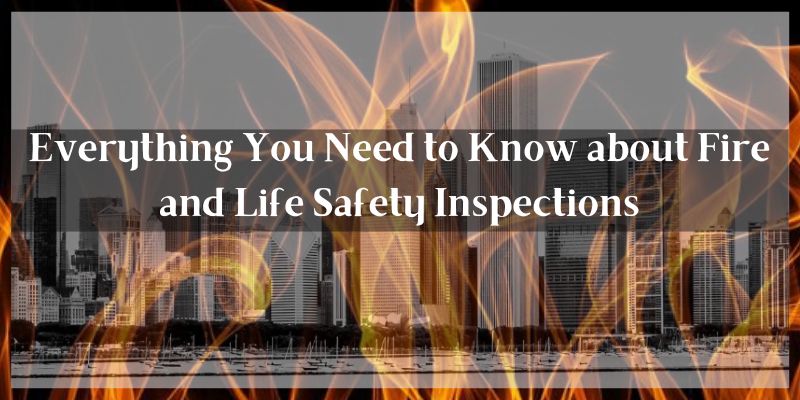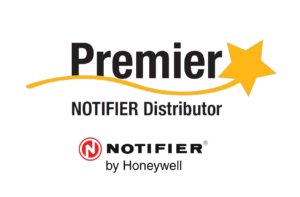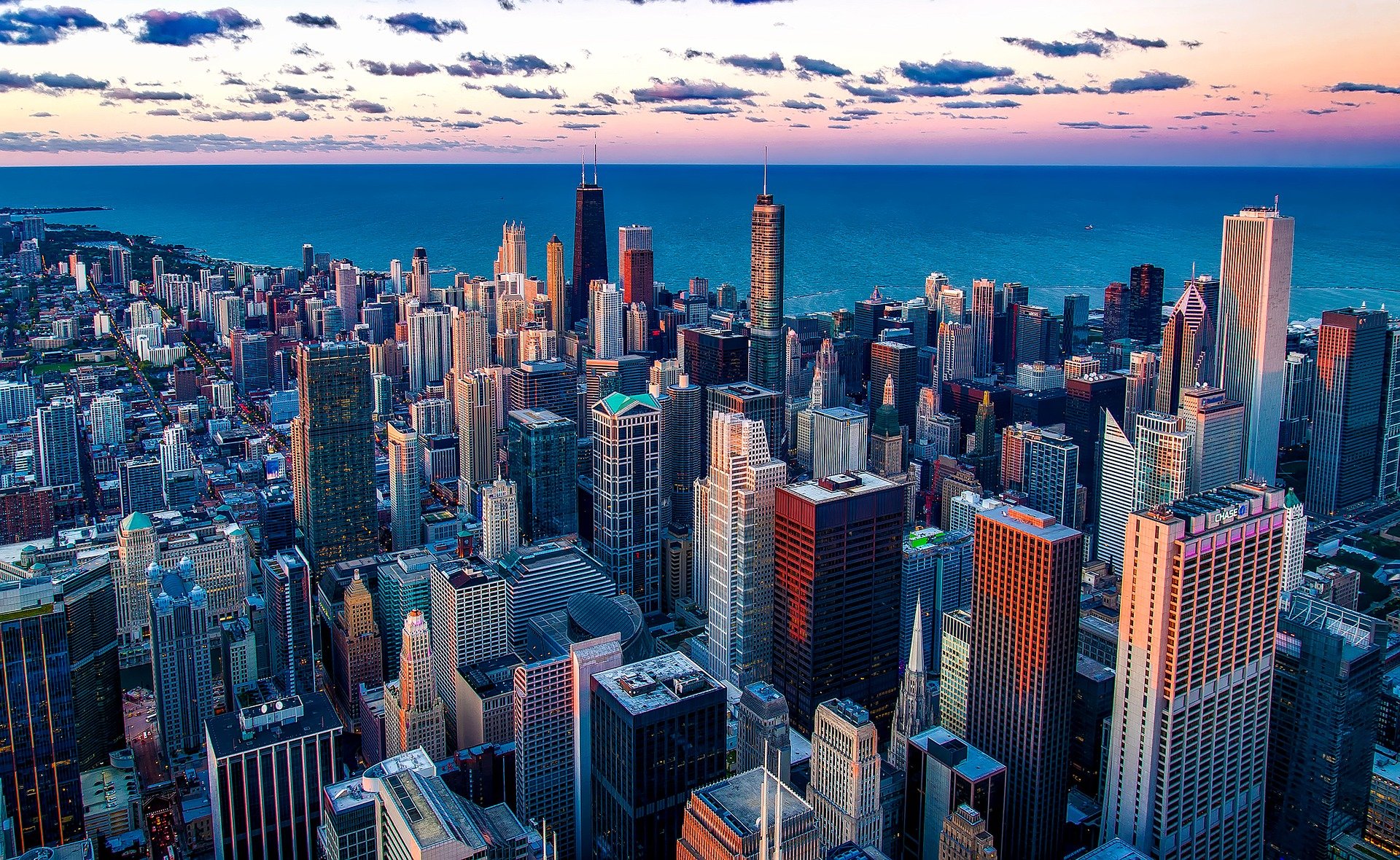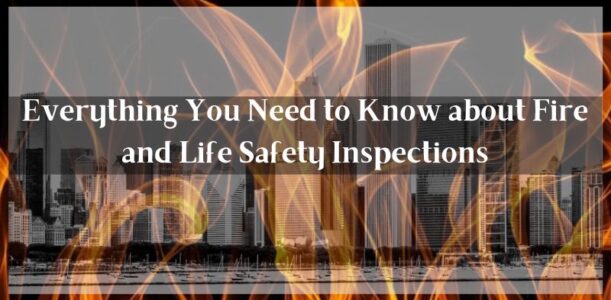
Every commercial facility should consult with fire and life safety providers to evaluate all fire and safety hazards and risks, and to ensure that code-compliant fire alarm systems and emergency response protocols are in place. Having a fire and life safety inspection from qualified fire safety providers ensures that all fire alarm equipment and safety protocols will pass a final inspection from authorities and most importantly, protect your people and assets in case of emergency.
Every business stakeholder has an interest in the safety of their buildings and the protection of people, whether operating a small corner store or a large student campus. Companies and commercial properties in all industries across Chicago must be aware of the many fire and safety codes and building regulations applicable to their property or consult with a knowledgeable commercial fire safety provider.
What is a fire and life safety inspection and assessment?
A fire and life safety inspection will help business owners understand their current situation and level of exposure and go further to include a written assessment along with solutions for compliance and maximum safety. A fire and life safety assessment report is provided based on an on-site system facility evaluation performed by commercial fire safety consultants.
Who are the stakeholders
All stakeholders should be identified in the report and should include all persons who have an interest in the public, personal, regulatory, financial, or safety interests which may include:
- Building and property owners
- Employees
- Public and community members
- Insurers
- Investors
- Leaseholders and tenants
- Neighbors
- Emergency responders
- Regulators and the Authority Having Jurisdiction (AHJ)
All of these potential stakeholders have an interest in the fire and life safety assessment of commercial property.
Get A Quote
NFPA
The National Fire Protection Association, NFPA, provides a Guide for the Evaluation of the Fire Risk Assessments in NFPA 551. NFPA551 serves as a guide for commercial fire safety professionals when performing fire life safety risk assessments which should also follow all applicable elements of NFPA 101®, Life Safety Code.
Other code regulations and guidance for fire safety professionals to follow include existing local, city, and state building and life safety ordinances such as the Chicago Building Code. Your commercial fire safety consultant should identify any area in your assessment that should involve the AHJ. A fire and safety inspection and assessment is guided by these NFPA standards and should also include:
- Evaluating all fire alarm detection, notification, and suppression equipment
- Assessing all emergency backup power supplies
- Reviewing evacuation planning and emergency procedures
- Inspecting safety and compliance of all means of egress
- Reviewing all emergency procedures including written protocols, training, and drills
- Inspecting general housekeeping and storage procedures
Do you need a fire and life safety inspection?
All commercial property owners are required to have an annual fire and life safety system inspection to ensure that all equipment is working properly and is in compliance with all life safety codes. NFPA 101 is revised every three years, and fire safety consultants can help business owners ensure compliance with all new or modified standards. All fire alarm equipment, including safety devices such as fire extinguishers, sprinkler heads, and other fire alarm detection and suppression equipment, is inspected each year for optimum working order. Notification devices, including visual strobes or mass notification systems, are inspected and/or tested.
Fire and life safety consultants consider each building’s specific layout to assess construction features such as fire doors, access to fire extinguishers, means of egress, shelter-in-place locations, elevator recall, and various other circumstances that relate directly to your property.
How to prepare for a fire and life safety inspection
Building owners and safety supervisors can help to prepare for a fire and life safety inspection in many ways. This will help them to better understand ongoing requirements to maintain safety on the premises and will help make the inspection go faster and smoother with fewer recommendations for compliance. Some of the most important things building owners can do to prepare for fire safety inspection include:
- Inspect and certify portable fire extinguishers – make sure you have the right type of fire extinguishers on-site, in the right location, and ready for use.
- Maintain fire alarm system and all equipment – make sure all of your equipment is in good working order, including all smoke detectors, sprinklers, notification, and communication systems.
- Check your exits, areas of egress, and lighting – make sure the right type of emergency lighting is in place and operational. Ensure all areas of egress are accessible without clutter blocking egress windows, doors, or hallways.
- Check outdoor visibility and access – make sure your address is clearly visible for first responders, and keep all trees and bushes trimmed to not block doorways or fire hydrants.
These are some things that business owners can do to help prepare for a fire and life safety system inspection.
Considerations for commercial fire and safety inspections
Building owners benefit when taking part in the fire and life safety decisions for their property. Consulting with an experienced commercial fire alarm and life safety system provider provides greater value to building owners who can better control fire safety and security expenditures while providing maximum safety to all occupants. Some of the most important considerations and questions to ask your fire alarm system provider include:
- How do they handle fire alarm system manufacturer list prices? Manufacturers publish their fire alarm system equipment list prices regularly, it is fairly simple to find out what the equipment costs and ask your provider if they charge the manufacturer’s list price or offer a discount.
- Guarantee of hourly rates – make sure you know what the hourly rates are and how long you are guaranteed these rates. Ask when they last issued an hourly rate price increase and by how much.
- Ask about the warranty on equipment or services – make sure you understand the type of warranty that comes with your equipment and the length of the period covered.
- Do they provide on-site training with installations? Ask how much training is included with the installation of a new fire alarm system and how much it costs. Every business property should have someone on staff that is trained to respond promptly in case of emergency.
- How would they handle building upgrades, renovations, or expansions? If you plan any type of business expansion, your fire and life safety provider should offer equipment that can be updated without replacing the entire system. They should also provide a solution to ensure non-stop coverage during the expansion.
Fire safety inspection and certification
Fire safety inspections for commercial properties are critical for business owners to maintain compliance with the many safety standards and building ordinance codes. The driving force behind every fire and life safety inspection is saving lives and preventing injury. Building owners and safety managers should familiarize themselves with some of the most important fire and safety standards, such as NFPA 101 and the International Fire Code.
Who Can Perform a Commercial Fire Alarm System Inspection
High Rise Security Systems, HRSS, offers fire alarm system inspections to ensure your property is code compliant and provides the maximum level of safety to all occupants, along with many other benefits. HRSS is highly respected in the fire safety community and often called upon for consultation to ensure safety in some of the most unique architectural structures in Chicago. HRSS offers only high-quality, UL-listed fire alarm system equipment and provides complete system design to ensure the proper location of all detection and notification devices.
We provide ongoing services for clients, including commercial fire alarm system testing, repairs, and maintenance. HRSS provides fire alarm system monitoring 24/7/365 for reliable monitoring and quick dispatch. We can help you to wade through the numerous codes and regulations from various sources to ensure complete code compliance. Our experienced fire safety consultants provide all necessary data sheets for submission to the local Authority Having Jurisdiction (AHJ) as we help our customers to pass all fire safety inspections and certifications.
HRSS provides commercial fire alarm system consulting, inspections, maintenance, and repairs to maximize safety and minimize fire exposure and risks. We protect all types of commercial properties in and around Chicago, including lowrise, high-rise, single buildings, and sprawling campuses. Contact us to ensure that your property and people are protected with a thorough, licensed commercial fire and life safety inspection.



